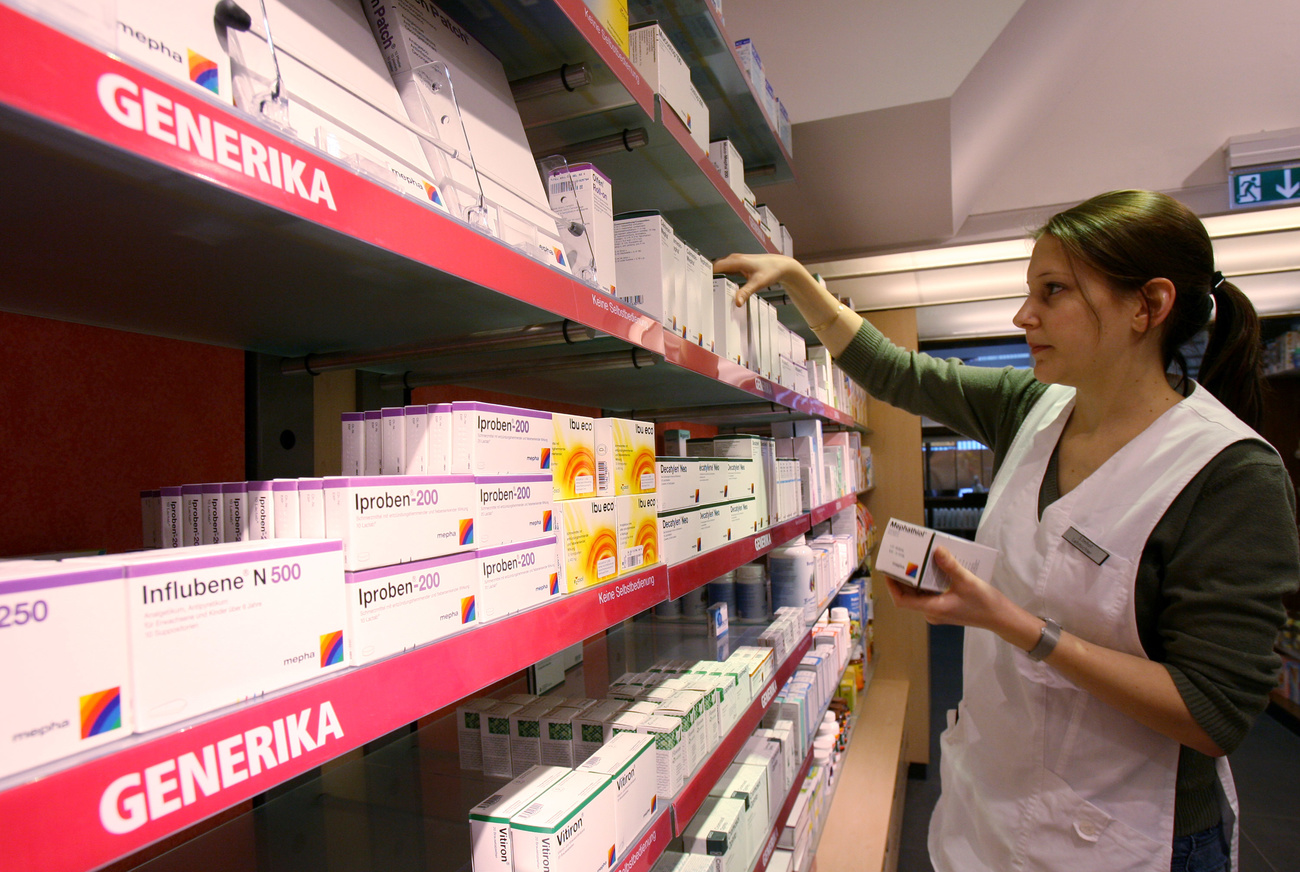
Swiss government to save CHF250 million with generic drug promotion

Generic drugs will become cheaper than original drugs and patients’ co-payment will increase if they choose the more expensive product. This is how the Swiss government plans to save CHF250 million ($275 million) a year.
The government has adopted the revisions to the Ordinance on Health Insurance, the Ordinance on Health Care Services and the Ordinance on Medicinal Products, which will come into force on January 1, 2024.
The focus is on the sale of generic drugs and biosimilar medicines. These equally effective and less expensive drugs are used less often in Switzerland than abroad.
Increasing the price gap to the original
The Swiss government is now intervening in the pricing of certain generic drugs and biosimilar medicines with chemical active ingredients because they are about twice as expensive as abroad. The House of Representatives rejected the introduction of a reference price system in 2020 and instructed the government to make adjustments at the ordinance level and enable savings.
Now, for generic drugs of active substances with a market volume of CHF4 million to CHF8 million, the price gap to the original preparation will be increased from 30% to 40%. The price gaps applied in the triennial review will be increased by 5%.

More
Switzerland remains high price island for drugs
When reviewing generic drugs for which there is no longer an original preparation with the same active ingredient in the list of specialities, a therapeutic cross-comparison with other generic drugs will be carried out to assess cost-effectiveness. At the moment, these generic drugs cannot be reviewed.
The Swiss government is also acting on biosimilar medicines. Up to now, these medicines have been included in the list of specialities if they are at least 25% cheaper than the original biological preparation. In the context of the triennial review, they must be 10% cheaper.

More
Insurance
The assessment of the economic viability of biosimilar medicines is now also carried out both for inclusion in the list of specialities and for the periodic review in the same way as for generic drugs, taking into account market-volume-dependent levels with price gaps of between 20% and 70% to the reference preparations.
Increased deductible
From the beginning of 2024, the deductible rate for patients who purchase expensive original preparations will also be increased. In principle, the deductible amounts to 10% of the costs exceeding the deductible rate. However, medicines will be subject to a deductible of 20% instead of 10% if they are too expensive compared to medicines with the same active ingredient.

More
Healthcare costs: is the system broken?
This increased deductible is now set at 40% with the revision of the ordinance. The rules on the differentiated deductible now also apply to biosimilar medicines. If there are medical reasons why a generic drug should not be dispensed, a more expensive original preparation can still be obtained without an increased deductible. However, this must now be proved with concrete facts.
According to the Swiss government, all these measures should lead to a cost reduction of around CHF250 million per year. The savings potential is “considerable”.
This news story has been written and carefully fact-checked by an external editorial team. At SWI swissinfo.ch we select the most relevant news for an international audience and use automatic translation tools such as DeepL to translate it into English. Providing you with automatically translated news gives us the time to write more in-depth articles. You can find them here.
If you want to know more about how we work, have a look here, and if you have feedback on this news story please write to english@swissinfo.ch.

In compliance with the JTI standards
More: SWI swissinfo.ch certified by the Journalism Trust Initiative

























You can find an overview of ongoing debates with our journalists here . Please join us!
If you want to start a conversation about a topic raised in this article or want to report factual errors, email us at english@swissinfo.ch.